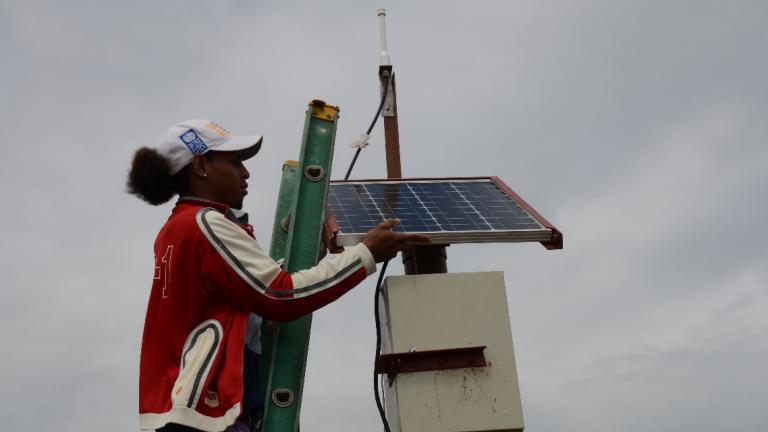
The Caribbean faces many energy supply issues, including a dependence on fossil fuels, low stability of the electrical system, and maintenance issues. Homes in rural areas are particularly impacted by these energy problems, which contribute to social and health issues in the affected communities. Guakia Ambiente (a Dominican environmental nonprofit) and REDSER (Dominican Network for the Sustainable Development of Renewable Energy), winners of the 2018 Provision of Energy Climate CoLab contest, have developed a system of community micro-hydroelectric systems in the Caribbean.
Guakia Ambiente plans on three types of turbines in different locations. The type of turbine used will depend on the results of a feasibility study which analyzes cost and effectiveness in site-specific contexts. Guakia Ambiente will also implement technical courses on the construction and maintenance of these turbines, providing education and employment to local communities and ensuring the upkeep of the hydroelectric systems. Guikia Ambiente and REDSER’s project will be carried out in 20 communities in the Dominican Republic and two in Haiti. They estimate that more than 5000 people receive electricity from these actions.
Executive director of Guakia Ambiente, Michela Izzo, writer of the winning Climate CoLab proposal, states that “Despite the hydropower generation is a well-known technology, the model that supports the interventions is the true innovation, being focused on community and people empowerment.” Guakia Ambiente’s community-oriented approach ensures long-term sustainability and feasibility of micro-hydroelectric systems in the Caribbean.

A multi-stakeholders’ platform was also established, with contributions from from the government, international cooperation, private sectors, as well as civil society. The stakeholders include the GEF Small Grants Program, United Nations Development Program (UNDP), the Rural and Suburban Electrification Unit (UERS), the National Energy Commision (CNE), the Popular Foundation, the Interamerican Foundation (IAF), and the European Union. Stakeholders collaborate to reach common objectives focused on renewable energy and the empowerment of local groups and people. These systems will also reduce the vulnerability of Caribbean nations to natural disasters, and improve networking among community initiatives.
Since winning the Climate CoLab contest, Izzo and Guakia Ambiente have made significant progress in their project. Izzo comments: “We have started new feasibility studies for community micro hydropower systems, including one in Haiti. Furthermore, with the REDSER, we are organizing a new course for community technicians, to strengthen their skills and knowledge and improve community capacity for systems management. We have carried out a study on the impact that these systems have in terms of contribution to ODS achievement. Finally, we have an approved project for the Assessment of Micro Hydropower Potential in the Dominican Republic.” Guakia Ambiente and REDSER will also participate in HUBweek—a week long event that celebrates arts, science, and technology-- with the other Climate CoLab winners, in October 2018.
Izzo has faith in this project and believes that it has potential to be replicated in other nations. She comments on the Climate CoLab win, stating that “being part of the platform allows us to know other relevant actions that people are carrying out through the world, improving our global vision.”






